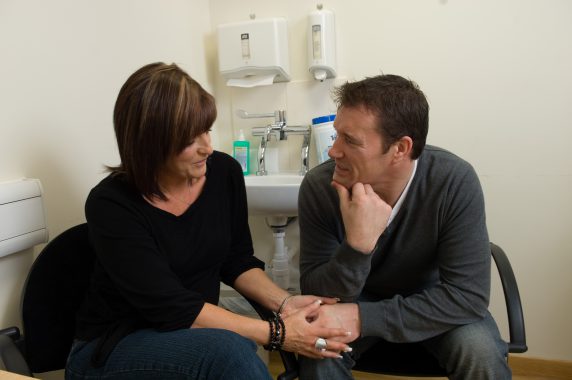GPs should have access to a ‘Samaritans-style’ mental health service, says HEE

GPs should have access to a national mental health support service on the NHS, according to Health Education England.
The recommendation forms part of HEE’s NHS staff and learners’ mental wellbeing report, which also said NHS staff should have access to psychological treatment through self-referral, and that any additional barriers stopping access for clinicians should be addressed.
GP leaders called the report a ‘turning point’ and said while the details need to be worked out, it is a ‘positive step forward’.
Other recommendations from the report included:
- The NHS should establish an NHS Workforce Wellbeing Guardian in every NHS organisation (where appropriate such as primary care this may be at a locality level)
- All NHS organisations should appoint a Workplace Wellbeing Leader to work with and report to the Workforce Wellbeing Guardian.
- A wellbeing ‘check-in’ should be provided to all postgraduate trainees (within two weeks) of starting the placement and on each placement. The personal wellbeing tutor must have sufficient dedicated, protected time in their job plan, which is audited and reported.
The document, published today, said: ‘A national NHS “Samaritans-style” service should be developed with the aim of providing a complete emotional support service to NHS staff and those learning in the NHS.’
It continued: ‘All NHS staff should have self-referral access to a practitioner psychological treatment service.’
‘Additionally, services must ensure access for those that have additional barriers to accessing local services such as doctors in the same provider or healthcare professionals with addictions. These services should ensure safe, confidential and timely access,’ the report added.
The Department of Health and Social Care told Pulse these recommendations will now be looked at as part of the upcoming workforce implementation plan, due in April.
GP burnout expert Professor Clare Gerada, medical director of the NHS Practitioner Health Programme (PHP) – which has offered mental health support to doctors since 2008 – said: ‘I think we’re facing a turning point.
‘Everybody now is concerned about the workforce issues. This report is wonderful, a really positive marker in the sand.’
Professor Gerada said while there are parts of the report that some people may disagree with, and noted that the funding needs to be found, she said she thinks ‘it really marks a change in what we’re going to do around workforce wellbeing’.
‘There’s work to be done, how it’s going to translate, where’s the funding, who’s going to need it and how it will fit in the long-term plan. Nevertheless, it’s good news.
‘This is marking all the hard work people have done, including Pulse and myself. It’s an amazing positive step forward,’ Professor Gerada added.
PHP also provides the more far-ranging GP mental health service, which was launched in January 2017, and to which GPs from all over the country are free to self refer, anonymously and free of charge.
The launch of the GP mental health service followed lobbying from the profession – and Pulse’s Battling Burnout campaign – for a comprehensive support service for GPs struggling with mental health concerns related to stress and burnout.
In response to the new report, GMC chief executive Charlie Massey said: ‘This review is very welcome, and provides important insight into an issue which is of great concern to so many of us. The mental wellbeing of NHS staff is crucial, particularly at a time when the pressures they face are so great.
‘Dame Denise Coia and Professor Michael West are currently conducting a review, commissioned by us, that is UK-wide and focuses on the causes of poor wellbeing at all stages of a doctor’s career, as well as medical students. I am sure they will look very carefully at this report in developing that review.
‘The GMC is keen to continue to work collaboratively with HEE, and other organisations, to bring improvements to the working lives of doctors and the teams with which they work.’
The charity revealed 40% had experienced mental health problems, including conditions like depression, anxiety, bipolar disorder and post-traumatic stress disorder.
Visit Pulse Reference for details on 140 symptoms, including easily searchable symptoms and categories, offering you a free platform to check symptoms and receive potential diagnoses during consultations.









